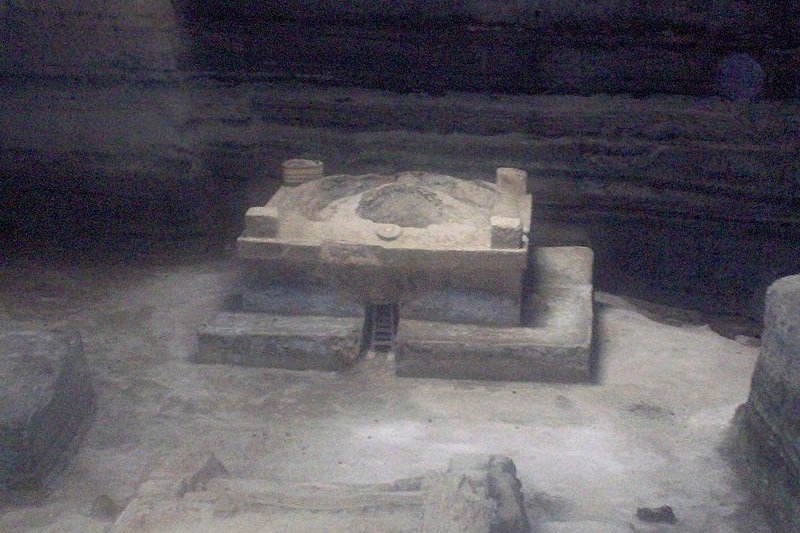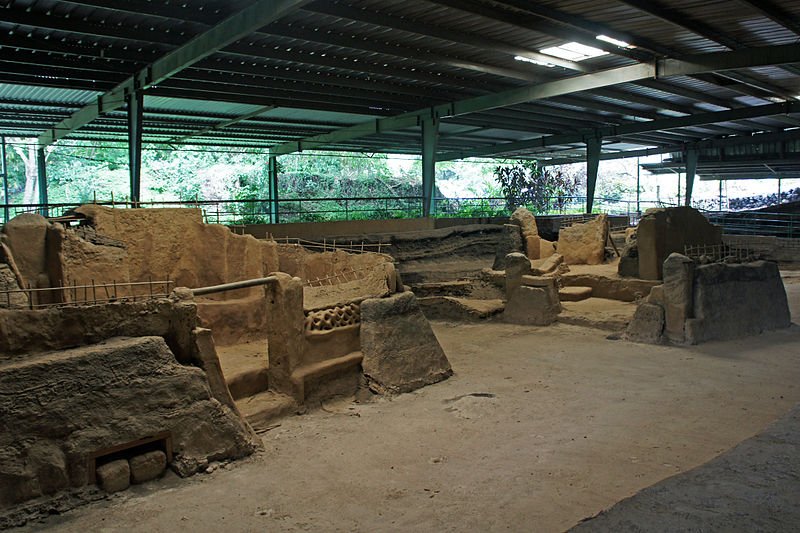 Ruins of Joya de Ceren, El Salvador
Ruins of Joya de Ceren, El SalvadorSource: https://commons.wikimedia.org/wiki/File:Temazcal_en_Joya_de_Ceren.jpg
Author: Julio Cesar Acosta Burgos
 Joya de Cerén Archaeological Site is a site of pre-hispanic farming community that was buried under lava following the eruption of Laguna Caldera volcano in AD 600. As such it is similar to Pompeii and Herculaneum in Italy.
Joya de Cerén Archaeological Site is a site of pre-hispanic farming community that was buried under lava following the eruption of Laguna Caldera volcano in AD 600. As such it is similar to Pompeii and Herculaneum in Italy.The exceptionally well preserved remains at Joya de Cerén provides scientists a glimpse into the daily life of the people during that particular point in time.
Joya de Cerén Archaeological Site was inscribed as a World Heritage Site during the 17th session of the World Heritage Committee which was held in Cartagena, Colombia, on 6-11 December, 1993.
 Joya de Ceren Archaeological Site, El Salvador
Joya de Ceren Archaeological Site, El SalvadorSource: https://commons.wikimedia.org/wiki/File:ES_Estructura_12_y_10_Area_1_Joya_Ceren_05_2012_1516.jpg
Author: Mariordo (Mario Roberto Duran Ortiz)

World Heritage Site Inscription Details
Location: N 13 49 39 W 89 22 9 in La Libertad, Canton of Joya de Cerén, El SalvadorInscription Year: 1993
Type of Site: Cultural
Inscription Criteria: III, IV
Visiting Joya de Cerén Archaeological Site
It is best to make the arrangements with a travel agency either in El Salvador or in your home country, to visit the Joya de Cerén Archaeological Site. Latest updates on Penang Travel Tips
Latest updates on Penang Travel Tips

Copyright © 2003-2025 Timothy Tye. All Rights Reserved.

 Go Back
Go Back